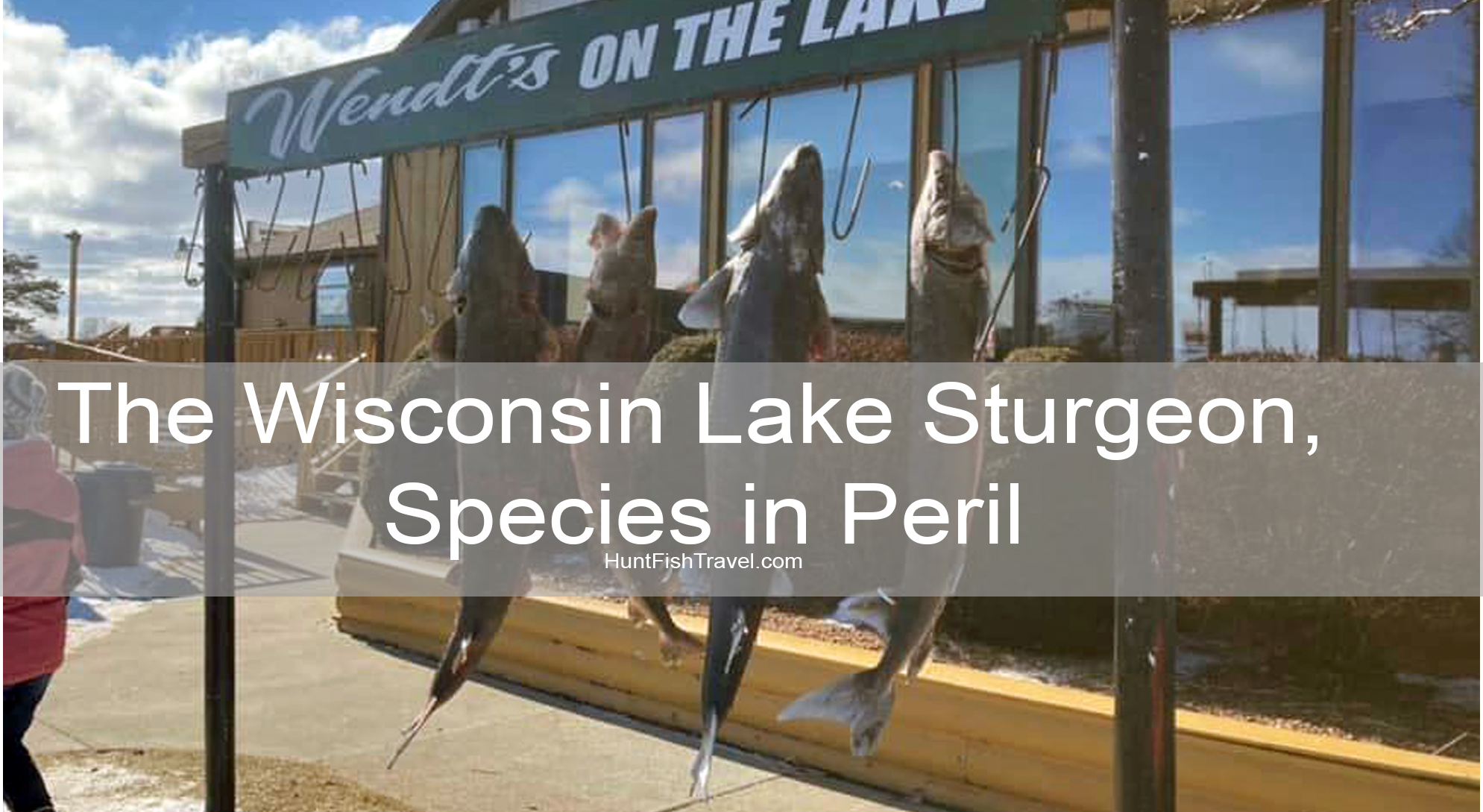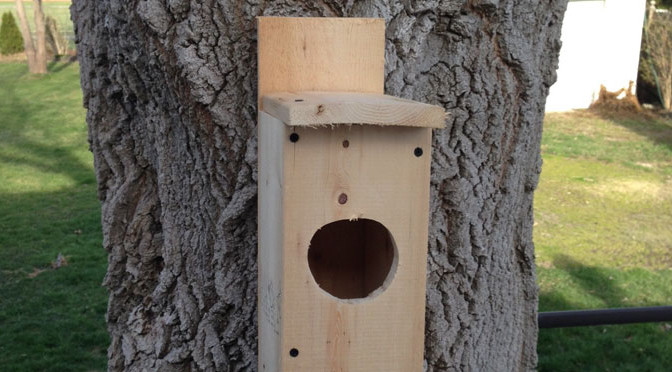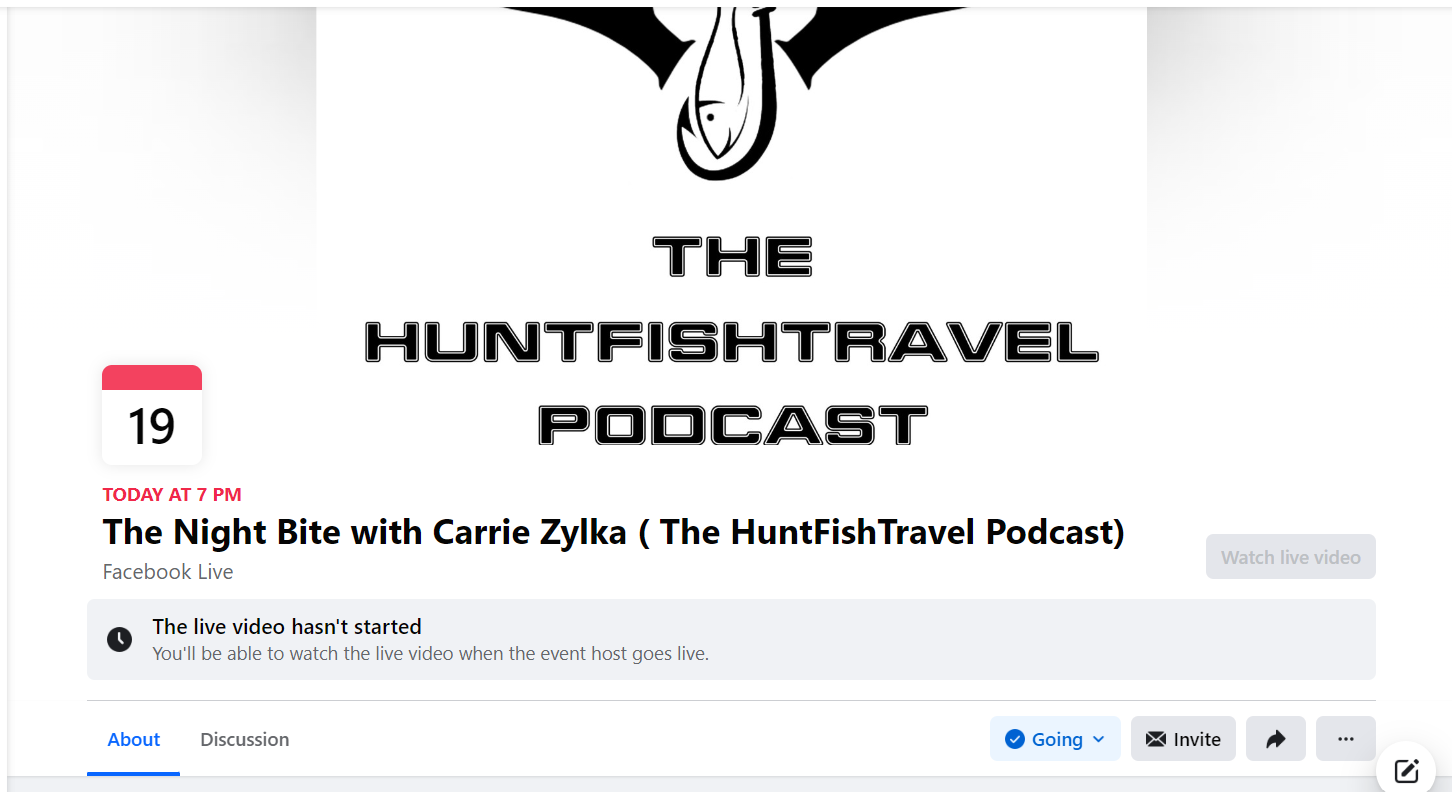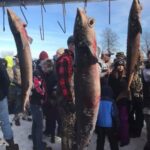 The mighty lake sturgeon, a prehistoric dinosaur of a fish—a creature with a face only a mother could love. Well, a mother and thousands of people in Wisconsin. The sturgeon has faced extinction across the globe.
The mighty lake sturgeon, a prehistoric dinosaur of a fish—a creature with a face only a mother could love. Well, a mother and thousands of people in Wisconsin. The sturgeon has faced extinction across the globe.
As the primary source of expensive, high-end caviar, sturgeons have carried a price tag on their heads for hundreds of years. The extraordinary value of their eggs has been a thorn in the side of those who want this species to thrive. Sturgeon roe, or caviar as it’s called on the diner table of the world’s elite, is extremely valuable. On the open legal market, varieties such as Russian beluga caviar can sell for as much as $500 or more for a mere ounce of the briny eggs. When you consider that a mature fish can hold as much as 20 pounds of eggs, it isn’t hard to see why poaching and overharvesting can be an issue.
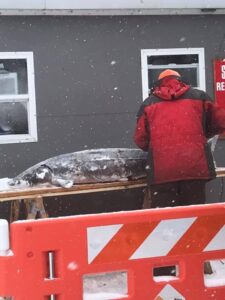 Early in the 1900s, residents in the area of the Lake Winnebago system in northeastern Wisconsin noticed that their sturgeon were going the way of sturgeon populations across Europe. With unrestricted harvest and wanton waste of the fish species, Lake Winnebago’s sturgeon were in drastic decline. They implemented strict sturgeon seasons and bag limits in an effort to save this beloved species.
Early in the 1900s, residents in the area of the Lake Winnebago system in northeastern Wisconsin noticed that their sturgeon were going the way of sturgeon populations across Europe. With unrestricted harvest and wanton waste of the fish species, Lake Winnebago’s sturgeon were in drastic decline. They implemented strict sturgeon seasons and bag limits in an effort to save this beloved species.
Sturgeon had been speared in the winter, dating back to when this was all Native American land. They would lie on the ice, with blankets over them, and spear them through holes in the ice—not much different than how it’s done today. They used these massive fish to feed their families through the long, cold Wisconsin winter. The Native Americans passed this time-honored tradition to the settlers of this area. Generations later, the people still hold this fish in high regard.
It was with this generational love of the fish that helped save this species from the brink and usher in one of the greatest conservation victories in the history of mankind. Organizations such as Sturgeon for Tomorrow were created to help these dinosaurs. With the help of Sturgeon for Tomorrow, the Wisconsin Department of Natural Resources (WIDNR) was able to develop pioneering ways to rear fish in captivity. This, for many years, was thought to be impossible. Without a way to hatch eggs, stocking these fish would not be possible, and the sturgeon would be bound to live the fate of the dodo. And in many areas of the United States, they did.
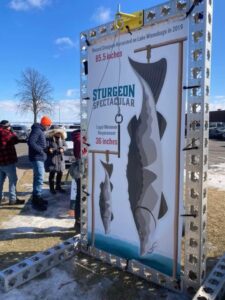 Most sturgeon species have expensive, edible roe, so no species of sturgeon have been able to escape this dilemma. There are eight species of sturgeon in North America: the Atlantic, shortnose, shovelnose, pallid, Alabama, white, green, and lake sturgeon. All of which have borne the brunt of the caviar trade. The lake sturgeon has been said to rank up with the Russian beluga in top varieties and was prized for the market; populations in the 1800s were world-class. But with so many of our natural resources, European expansion dwindled them all.
Most sturgeon species have expensive, edible roe, so no species of sturgeon have been able to escape this dilemma. There are eight species of sturgeon in North America: the Atlantic, shortnose, shovelnose, pallid, Alabama, white, green, and lake sturgeon. All of which have borne the brunt of the caviar trade. The lake sturgeon has been said to rank up with the Russian beluga in top varieties and was prized for the market; populations in the 1800s were world-class. But with so many of our natural resources, European expansion dwindled them all.
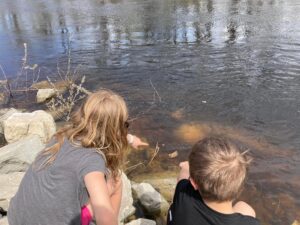 Fast forward a hundred years or so. With great work from Sturgeon for Tomorrow, the WIDNR, and a handful of local fishing clubs around the Winnebago area, the local lake sturgeon population is the best in the world. With seasonal harvest caps of close to 800 females and 1200+ males, the Winnebago system has a surplus of sturgeon to make for a really reasonable harvest. The only other lake to hold a spearing season for sturgeon is Black Lake in the state of Michigan. The harvest cap on Black Lake is just 6 animals before the season closes. In comparison, Lake Winnebago’s population is very robust.
Fast forward a hundred years or so. With great work from Sturgeon for Tomorrow, the WIDNR, and a handful of local fishing clubs around the Winnebago area, the local lake sturgeon population is the best in the world. With seasonal harvest caps of close to 800 females and 1200+ males, the Winnebago system has a surplus of sturgeon to make for a really reasonable harvest. The only other lake to hold a spearing season for sturgeon is Black Lake in the state of Michigan. The harvest cap on Black Lake is just 6 animals before the season closes. In comparison, Lake Winnebago’s population is very robust.
Every spring, thousands of these massive fish migrate up the Wolf River, a 200-plus-mile river. People young and old gather along the shores to get a glimpse of them rolling and spawning on the rocks along the banks in New London, Shiocton, and the dam in Shawano. Probably the only place in the world this site can still be seen. It’s amazing to see hundreds of these behemoths, almost in petting distance. To see the eyes of young children as they see these amazing creatures so close makes all the work this community has done to bring this species back all worth the effort.
This year the U.S. Fish and Wildlife Service (USFWS) is debating listing the lake sturgeon on the endangered species list. Now, in most of the home range, that proves very true, and the fish need our protection. But the Winnebago system is an anomaly. The people of Wisconsin have managed their own population so successfully that it is the only real fishable population. So successful that The Winnebago chain is where the rest of the world looks to when trying to protect them, to figure out what works and what doesn’t. There is no better people in the world that can possibly help save these fish.
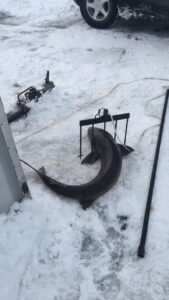 Then in steps the federal government, saying, “Hold my beer.” As anyone knows, when the feds step in, it’s time to worry. This June, the USFWS will decide whether or not to list the lake sturgeon under the Endangered Species Act. Doing so would take the role of management of the population out from the state organizations that have done a wonderful job so far and transferring it to the federal government. Doing so would end not only the beloved sturgeon spearing season here on the Winnebago chain but also put an end to all the work the organizations have put in.
Then in steps the federal government, saying, “Hold my beer.” As anyone knows, when the feds step in, it’s time to worry. This June, the USFWS will decide whether or not to list the lake sturgeon under the Endangered Species Act. Doing so would take the role of management of the population out from the state organizations that have done a wonderful job so far and transferring it to the federal government. Doing so would end not only the beloved sturgeon spearing season here on the Winnebago chain but also put an end to all the work the organizations have put in.
The annual 2-week spearing season puts a whopping estimated $3.5 million into the economy of the area, most of which are small rural towns that rely heavily on the impact of the annual season. All license proceeds go directly back to sturgeon conservation. It’s truly a festival-type atmosphere around the lake. From the live bands, food, and libations enjoyed by many at Payne’s Point Hook and Spear club in Neenah, to the citywide celebration called the Sturgeon Spectacular in Fond du Lac on the south shore, to all the little bars and supper clubs that dot the lake, crowds of people gather every year to watch the harvest get brought ashore. This listing stops it all. Instantly.
Rep. Mike Gallagher (R-WI) and Rep. Glenn Grothman (R-WI), along with bipartisan signatures from Senators Tammy Baldwin and Ron Johnson and others, have put together a letter to the USFWS dubbed the “Sturgeon Protection and Exemption from Absurd Regulations Act” or “SPEAR Act” (got to love the name). This letter addresses the fact that Wisconsin can hold its own when it comes to managing its sturgeon populations.

“At Stockbridge High school. Information meeting about listing Lake Sturgeon as endangered species. Meeting Packed.”
While the USFWS does not take into consideration the economic impact of its decisions, as well it shouldn’t. Money should not trump nature, so their view will strictly be from a population standpoint. As many are seeing play out with wolves in Wisconsin, we all know just how hard it can be to manage a wildlife species listed on the ESA. Once set in stone, it will be very difficult to have any population of sturgeon delisted. When asked about the odds this will happen, Congressman Mike Gallagher responded “better than 50/50”. Those that love the fish and live the heritage of the annual harvest do not see that as good odds. Gallagher recommended a letter-writing campaign to the USFWS in opposition to the listing. An exemption can be made for certain populations of a species listed on the ESA, but it is rarely done. The ball is in their court right now, and all we can do is sit back, wait, and hope for the best. We still have 1 open season left to take part in the harvest, and that may just be the end of an era that has gone on for many generations. I just hope the federal government can realize the mistake before they make it.
Discover more from The HuntFishTravel Show
Subscribe to get the latest posts sent to your email.
